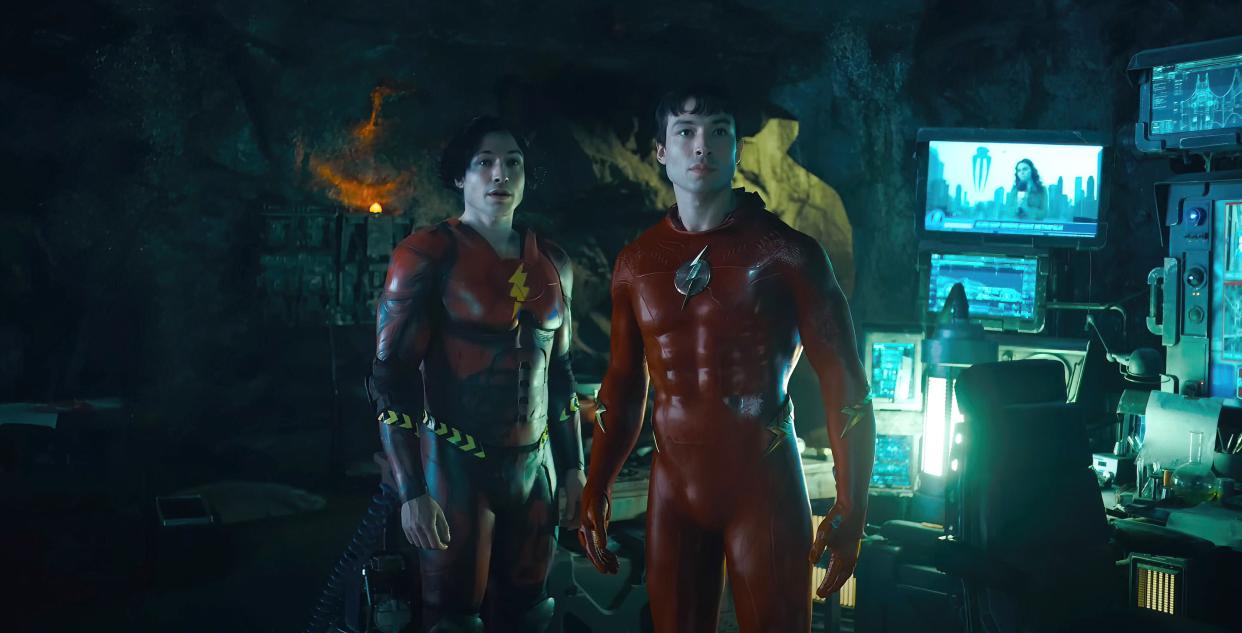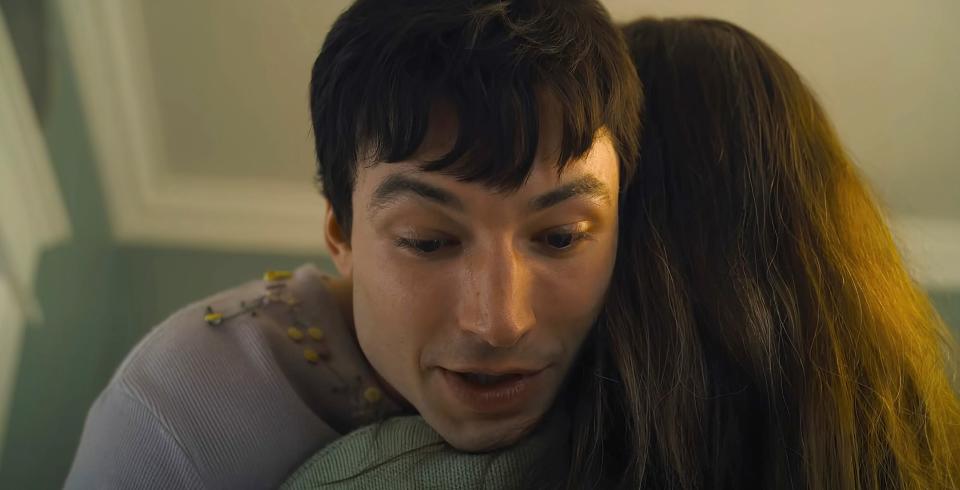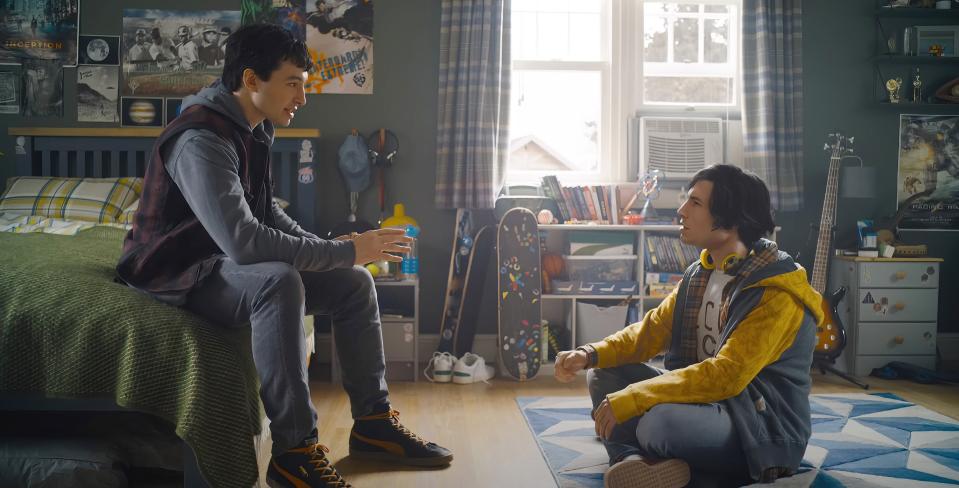‘You Can’t Make a Movie That Doesn’t Reflect Your Instincts’: Director Andy Muschietti on ‘The Flash’

- Oops!Something went wrong.Please try again later.
- Oops!Something went wrong.Please try again later.
- Oops!Something went wrong.Please try again later.
When director Andy Muschietti came on board DC’s “The Flash,” he knew the tonal balance he wanted to strike. “We wanted to make a stylized movie that was at the same time realistic,” he told IndieWire’s Filmmaker Toolkit podcast. Although “The Flash” incorporates aspects of earlier DC releases (most notably Tim Burton‘s 1989 “Batman” and various movies from the Zack Snyder-verse), Muschietti’s approach is both funnier and less fanciful, with the comedy rooted in behavior and the design elements extrapolated more from reality than Burton and Snyder’s more deliberately artificial films.
Part of how Muschietti achieved the balance had to do with his and cinematographer Henry Braham’s approach to coverage. Rather than force the actors into pre-planned blocking, Muschietti and Braham devised a system by which the camera would be handheld yet stabilized, giving the actors the freedom to move where they wanted. “[This approach] gives you a lot of freedom and it gives you the ability to make 360-degree shots,” Muschietti said. “It’s not studio mode where everything is cinematic in the classic way. The camera seems to be liberated, and that brings you closer to the feeling that what you’re seeing is more real.”
More from IndieWire
Oliver Stone: 'John Wick: Chapter 4' Is 'Disgusting Beyond Belief' and More Video Game Than Movie
Cannes 2023 Acquisitions: Magnolia Buys 'The Feeling That the Time for Doing Something Has Passed'
The system Muschietti and Braham developed had the added benefit of allowing the filmmakers to move quickly. “I never shot faster in my life than with this rig,” Muschietti said, adding that the wide-angle lenses Braham used increased the sense of intimacy. “I love wide lenses because they create a lot of depth and the perspective is closer to the characters. This movie is all about emotions, and I want the camera so close to the actors that it’s like I can see their soul, you know?”

The fluid, naturalistic style Muschietti achieved is all the more remarkable given that many scenes feature two iterations of The Flash’s alter ego Barry Allen, meaning that there are two Ezra Millers acting opposite each other. The freedom Muschietti was determined to give his actors meant the old way of shooting an actor’s dual performance, a la “Dead Ringers” (which starred Jeremy Irons, one of the actors in “The Flash”) or “Multiplicity” (a vehicle for another “Flash” star, Michael Keaton), was out. “In the age of ‘Dead Ringers,’ they used split screen, or if the camera was moving, they’d put in a double who looked like Jeremy Irons and shoot him three-quarters so you couldn’t see his face,” Muschietti said. “If I used split screen, it would feel stiff because you basically can only get static shots.”
Muschietti dismissed another way of shooting “twin” effects, motion control, for more pragmatic reasons. “Motion control gives you a little bit of movement, but you still have to send the actor back to the makeup trailer and wait an hour for them to be turned into the other character,” Muschietti said.
Muschietti worked with the visual effects department to devise a novel solution: Miller would shoot each scene opposite a double who had cameras attached to the top of their head that captured a 360-degree environment. Then, after the movie was shot and edited, Miller came back and reshot their scenes from the double’s position in a volume, where the virtual environment photographed by the double was projected around them so that they could react not only to themself but to all the other actors and action.

During production, Miller played whichever Barry had the most lines in the scenes, then returned to play the other Barry during post. “It was a bit complicated, but it made sense,” Muschietti said. “It was a bit of a leap of faith and there was a lot of development to refine the process. The studio had its hesitations at the beginning because it was something that had never been done before, but they finally trusted us and our enthusiasm and went for it.”
That enthusiasm never waned, even as Miller became embroiled in controversy and legal action. “I believed in this movie so much from the beginning that I knew that when people saw it, they were gonna love it,” Muschietti said. “Some of the people, I don’t know. But it wasn’t something that I was too concerned about, honestly.”
In spite of the massive pressure of making a film at a larger scale than any of his previous movies, Muschietti never felt overwhelmed by the size. “The spectacle is something the audience appreciates when the movie is finished, but the truth is that when you’re in production working with the actors and rehearsing, the spectacle doesn’t really interfere with the emotional parts,” he said, adding that the studio’s support kept him from worrying that his point of view would be compromised. “I think they believe that the purest form of filmmaking results from chasing one vision instead of making a movie by committee. That’s what filmmakers do, they have a vision, and the vision comes from inside. When the vision comes from the outside, it’s a disaster.”
Surprisingly, Muschietti said he felt far more pressure making his first short film than he any of his studio projects, including “The Flash.” “[Making films] is a process of learning to trust your instincts and finding things that excite you. When you finesse those instincts, then everything else is secondary. You can’t make a movie that doesn’t reflect your instincts. Of course, it’s not only about my instincts: It’s the screenwriter, Christina Hodson, and the cast is incredible. Ezra had so much to do with the success of the movie. I don’t know about the box office success because the movie hasn’t come out yet, but I think it’s a cinematic success because of all our combined instincts.”
Best of IndieWire
Where to Watch This Week's New Movies, from 'Asteroid City' to 'The Flash'
Wes Anderson Movies, Ranked: 'Bottle Rocket' to 'Asteroid City'
Sign up for Indiewire's Newsletter. For the latest news, follow us on Facebook, Twitter, and Instagram.

